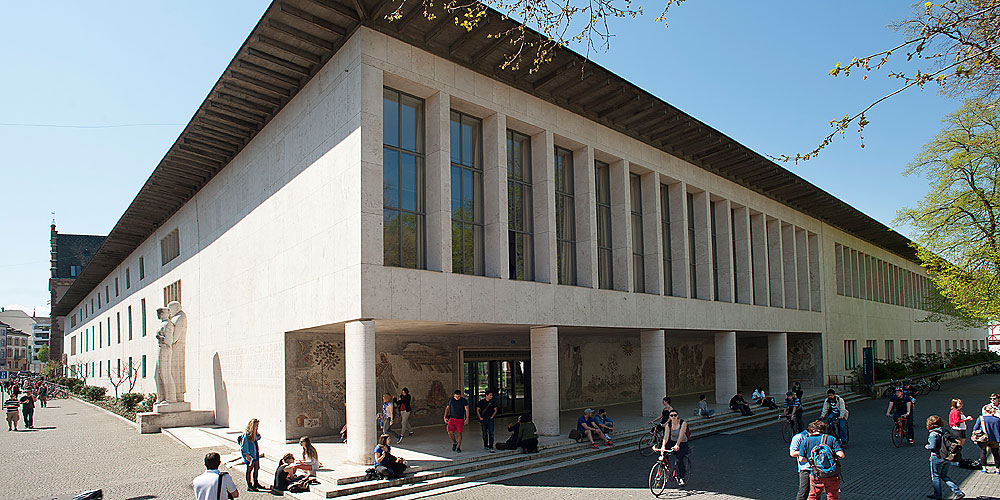The 2018–2021 performance period as challenge
The University of Basel has accepted the challenges of the 2018 to 2021 performance period and defined the necessary measures. On the one hand, payments into the real estate fund will be reduced and reserves will be released. At the same time, the budgets of the faculties and departments will be reduced by an average of 2.5 percent. The implementation of these measures will ensure that the University of Basel can continue to develop in strategically important areas during this performance period, despite a decline in its global contribution.
31 October 2018
In conjunction with the performance mandate for 2018-2021, the governments of the sponsoring cantons of Basel-Landschaft and Basel-Stadt defined the global contribution available to the University of Basel for this period. Compared with 2017, the contributions of the sponsoring cantons will be reduced by a total of CHF 12.4 million over these four years. However, since the University of Basel will incur unavoidable additional costs as a result of decisions already taken by the sponsoring cantons and necessary investments in important strategic areas, it will have to reduce existing budget items in its financial planning by around CHF 36 million per year up to 2021.
At CHF 9.3 million, teaching and research will account for a quarter of the cost-saving measures. In real estate, the budget will be reduced by CHF 15.9 million, with the largest share coming from the reduction in payments to the real estate fund. Finally, the University of Basel will liquidate its reserves. Over the entire performance period 2018-2021, the University of Basel will save a total of CHF 79.9 million.
The University`s management has implemented the planned cuts in close cooperation with the faculties and administrative units throughout recent months. The primary objective was to avoid lasting damage and to minimize the impact on teaching so that the University of Basel continues to be perceived as an attractive place to study. For this reason, no increase in tuition fees has been made.
Despite the need to save money, the University of Basel will be able to launch strategically important projects in the coming years – not least thanks to its great success in obtaining third-party funding. The granting of third-party funding, however, presupposes that the university has its own resources. In the field of ophthalmology, thanks to generous co-financing from Novartis (CHF 100 million) and the Canton of Basel-City (CHF 12.5 million), together with the University Hospital it is able to set up the Institute of Molecular and Clinical Ophthalmology Basel (IOB), which is to become one of the world's best centers in its field.
Another major project was announced in mid-September: The Botnar Foundation has announced that it will support a joint project between the University of Basel and the ETH with a total of CHF 100 million: Over the next few years, the Botnar Research Centre for Child Health (BRCCH) aims to become the leading institution in application-oriented cutting-edge research to promote the health and quality of life of children and young people worldwide.
As further strategic measures, the University of Basel will also invest in the digitalization of teaching and research in the coming years and continue to promote the transfer of knowledge and technology.
The University regards the 2018-2021 performance period, with its stagnating conditions and the ongoing negotiations between the cantons as a transitional period, which will be managed with the combination of structural and one-off measures described here, without fundamentally hindering the development of the University. In view of the investments made by competitors at home and abroad, it should be assumed that the next performance period will see the redefinition of framework conditions that will enable sustainable development of the university.
The synopsis Implementation of the cost-saving measures in the 2018–2021 performance period provides an overview of the most important measures in the various organizational units of the University of Basel.
Further Information
Matthias Geering, University of Basel, Head of Communications & Marketing, phone +41 61 207 35 75, cell +41 79 269 70 71, mail: matthias.geering@unibas.ch



